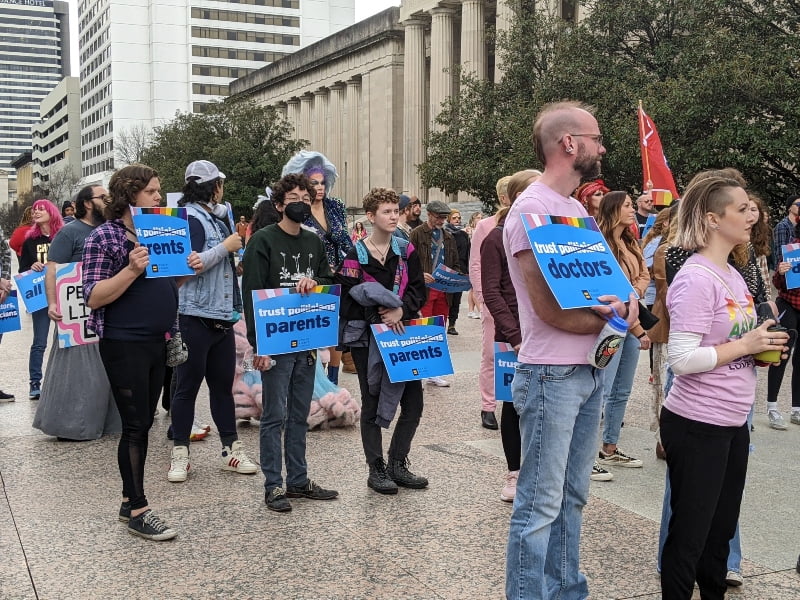A federal judge, appointed by former President Donald Trump, has declared that Tennessee’s groundbreaking law, aimed at imposing strict restrictions on drag shows, violates the Constitution. In his ruling issued on Friday, U.S. District Judge Thomas Parker deemed the law to be both excessively vague and overly broad, leading to potential discriminatory enforcement.

Judge Parker emphasized that while obscenity is not protected by the First Amendment, there exists a distinction between what is considered obscene in everyday language and what is deemed obscene under the law. He further stated that sexually explicit speech, which falls short of being classified as obscene, should receive the same level of protection as political, artistic, or scientific expression, as no majority of the Supreme Court has ruled otherwise.
A federal judge has determined that a Tennessee law, which aimed to prohibit adult cabaret performances in public areas or places where minors might be present, is unconstitutional. The law carried the risk of misdemeanor or felony charges for performers who violated it repeatedly.
Judge Parker illustrated the potential consequences of the drag law by using the example of a female performer dressed as Elvis Presley, who could be penalized under the law for being considered a “male impersonator.”
The LGBTQ+ theater company Friends of George’s, based in Memphis, filed a complaint in March, expressing concerns that the law would negatively impact their productions, which included drag-focused performances, comedy sketches, and plays without age restrictions. Initially, the complaint named Republican Governor Bill Lee, Attorney General Jonathan Skrmetti, and Shelby County District Attorney General Steven Mulroy as defendants. However, the plaintiffs later agreed to dismiss the governor and the attorney general from the case, while Skrmetti continued to represent Mulroy.
Following Judge Parker’s ruling, there was no immediate response from spokespersons for Skrmetti and Mulroy regarding their comments on the ruling.
Republican Senate Majority Leader Jack Johnson, one of the main sponsors of the law, expressed disappointment with the decision, stating that it favored those who supported exposing children to sexual entertainment. Johnson expressed hope that Skrmetti would appeal the ruling, which he found perplexing.

Although the law passed the Tennessee Legislature, dominated by Republicans, earlier in the year, with some GOP members citing drag performances in their local communities as reasons for its necessity, the actual term “drag” did not appear in the statute. Instead, lawmakers altered the state’s definition of adult cabaret to include “adult-oriented performances that are harmful to minors.” Additionally, “male or female impersonators” were categorized as a type of adult cabaret, akin to strippers or topless dancers.
Despite being signed by the governor and scheduled to go into effect on April 1, the law has never been enforced as the federal judge had previously granted a temporary block in response to the challenge brought forward by the opposing group in March.
Judge Parker also highlighted that the law’s sponsor, Republican State Representative Chris Todd, had been involved in efforts to prevent a drag show in his district before introducing the drag ban proposal. Todd admitted to not having seen the performance himself but still pursued legal action to halt the show, which ultimately took place indoors with an age restriction.
Read Also: Deseret Book: Empowering the LDS Community through Faith and Knowledge

